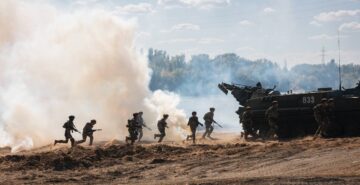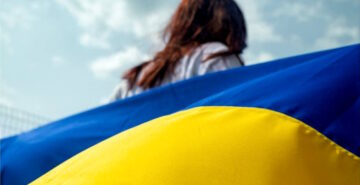

Militarisation from Preschool: How Future “Defenders” of Russia Are Being Raised in Temporarily Occupied Sevastopol
Cadet education is one of the mechanisms Russia uses to militarise children, including in the temporarily occupied territories of Ukraine (hereinafter – TOT). Through it, loyalty to Russian military structures is cultivated, and young people are gradually prepared for service in the Russian Armed Forces or other law enforcement and security agencies.
The occupation authorities in the TOT of the Autonomous Republic of Crimea and the city of Sevastopol are actively integrating the cadet component into education by establishing cadet classes in schools. The first such class was introduced in Yalta in the 2014/2015 academic year, the year Russia occupied Crimea. By the 2024/2025 academic year, the number of cadet classes in the TOT of the Autonomous Republic of Crimea had increased 21.7 times compared to the 2016/2017 academic year, rising from 12 to 260.
As for the TOT of the city of Sevastopol, the first cadet classes were also introduced almost immediately after Russia’s occupation – in 2015, based at schools No.22 and No.60. By the 2023/2024 academic year, the number of children in cadet classes in occupied Sevastopol had increased 17.2 times compared to the 2015/2016 academic year, rising from 71 to 1,220.
Cadet classes in the TOT of the Autonomous Republic of Crimea and the city of Sevastopol can be established in schools starting from the first grade, indicating the occupation authorities’ attempts to influence children’s consciousness from an early age, specifically from 6.5 to 8 years old. In some cases, however, the cadet component is introduced even in preschool institutions. One of the most vivid examples is kindergarten No.103 in the village of Kacha (TOT of the city of Sevastopol)*, where for the past five years, the additional programme “Young Kacha Cadets” has been implemented. The children are not only prepared for school, as would be expected in a preschool, but are also shaped into “exemplary citizens of the Russian Federation”, ready to serve Russia loyally.
*Kacha village became part of the Bakhchisarai district of the Autonomous Republic of Crimea
Kindergarten No. 103: Militarism from the ground up
Kindergarten No. 103 is one of the 8 preschool institutions under the supervision of the Russian Black Sea Fleet, which was transferred to the balance of the occupied city of Sevastopol in 2018. According to the website of the so-called “Government of Sevastopol”, the transfer took place “by decision of the Governor of Sevastopol Dmitry Ovsyannikov and the Minister of Defence of the Russian Federation Sergey Shoigu”.
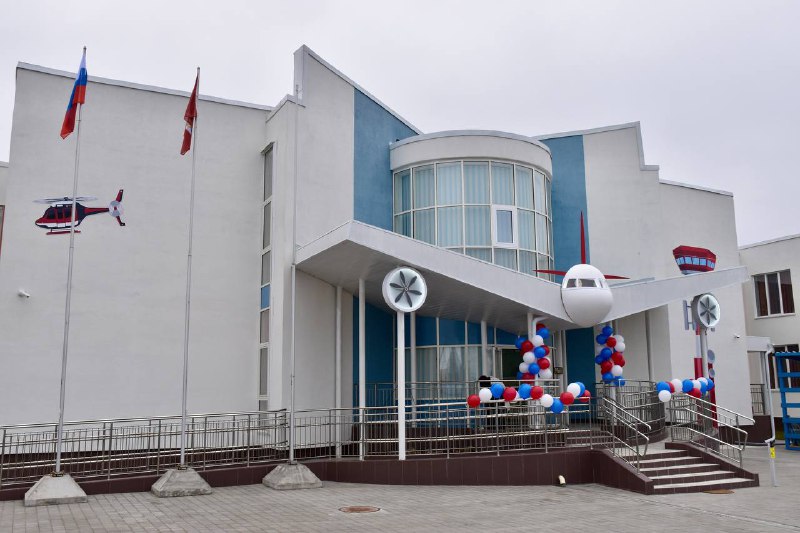

The Building of Kindergarten No. 103 in the village of Kacha (TOT Sevastopol), source: https://t.me/maksimkrivonos/1109 ,archive https://archive.ph/wip/oMyGO
In March 2024, a new second building of Kindergarten No.103 opened in the village of Kacha (TOT Sevastopol). The entire design is related to aviation, with the entrance to the kindergarten building resembling the fuselage of an airplane. This choice by the occupation authorities of Sevastopol is not accidental: according to the so-called director of the “Department of Education and Science of Sevastopol”, Maxim Kryvonos, who was present at the opening of the new building, the village of Kacha is known as the “cradle of military aviation”. Here, the first military pilot school in the Russian Empire operated, and later aviation units of the Russian Black Sea Fleet were stationed, which are now used by Russia in the wars it has started, including against Ukraine. Drawing on this militarized history of the Russian Federation, military education is being introduced in the village, beginning with the youngest children.
General information about the preschool educational institution
| Name | The so-called “State Budgetary Preschool Educational Institution of the city of Sevastopol Kindergarten No. 103” |
| Director | Sidorova Yuliya Evgenyevna |
| Location** |
1st building: 299814, Sevastopol, Polyushko village, Gagarin Street, building 5 (TOT) 2nd building: 299804, Sevastopol, Kacha village, Pokryshkina Street, building 13 (TOT) The previous 2nd building was located at 11 Aviatoriv Street, Kacha village. |
| Projected capacity |
1st building – 100 places |
In addition to implementing the “Junior Kacha Cadets” programme, a model aircraft workshop has been opened in the new 2nd building of the kindergarten. The head of the institution, Yuliya Sidorova, mentions that by the end of 2025, children plan to launch quadcopters: competitions for assembling and launching them will be timed to coincide with 9 May (Note: Victory Day in the Russian Federation).
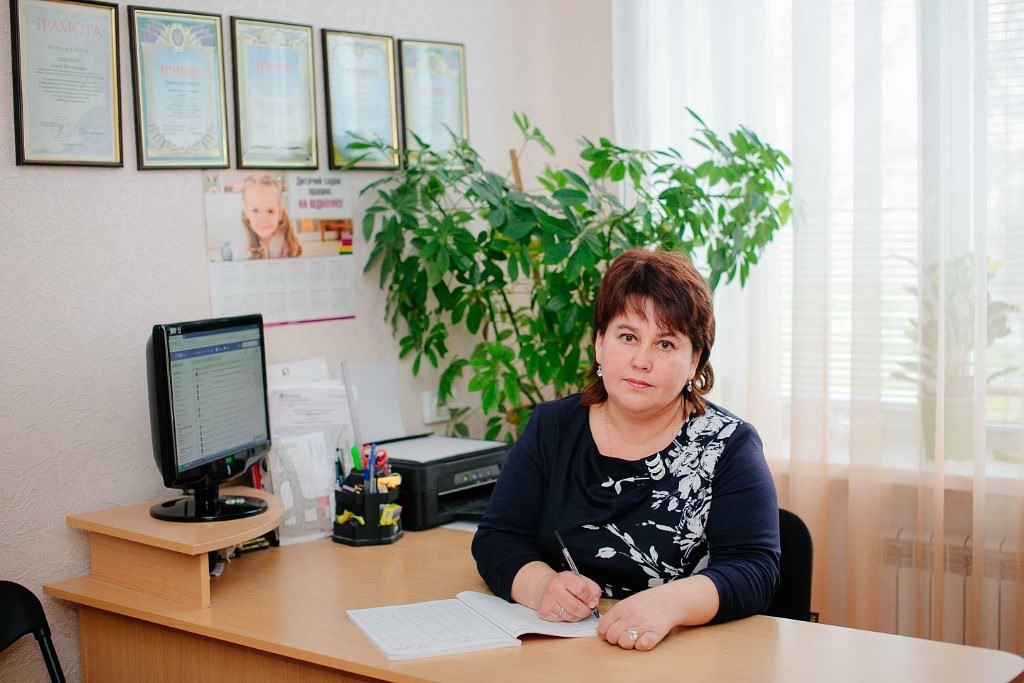

Yuliya Sidorova, director of Kindergarten No. 103.
Under the leadership of Sidorova, who has headed Kindergarten No. 103 since at least 2014, the institution actively involves preschoolers (not only cadets) in activities related to military themes. Ahead of 23 February (note: Defender of the Fatherland Day in Russia), the kindergarten conducts “Lessons of Courage”, where preschoolers are taught the importance of “defending their homeland” and being brave. Children are also engaged in making greeting cards and drawings for participants of the so-called “special military operation”. Additionally, the kindergarten holds patriotic song contests, where children in military uniforms perform songs about “homeland, heroism, and love for their country” and have meetings with Russian military personnel.
All these activities are designed to instil in the children the idea that Russia is their “homeland”.
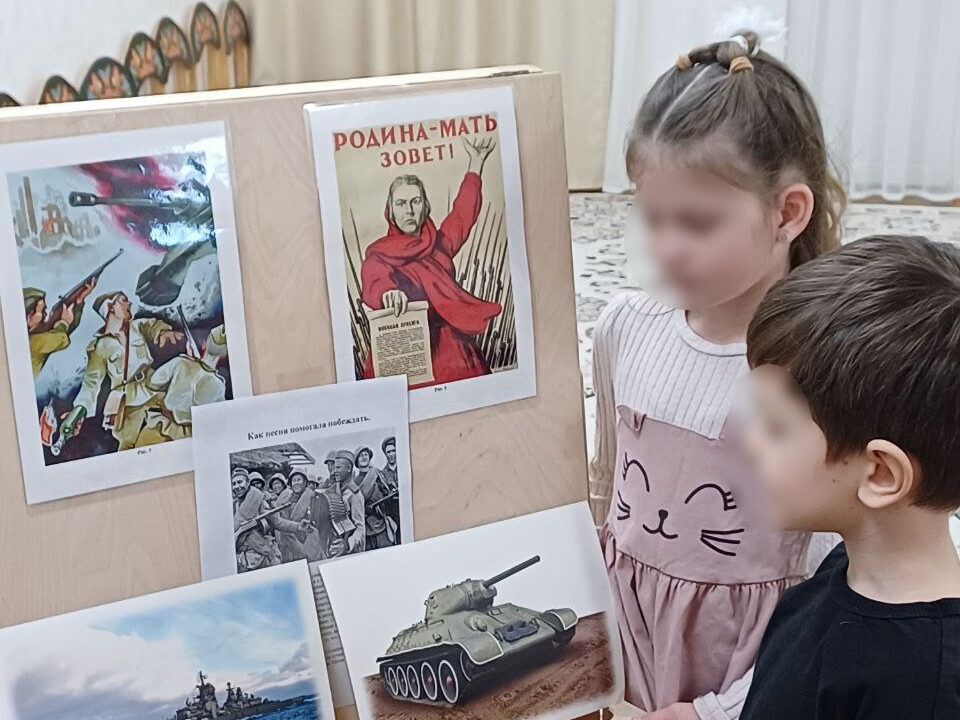

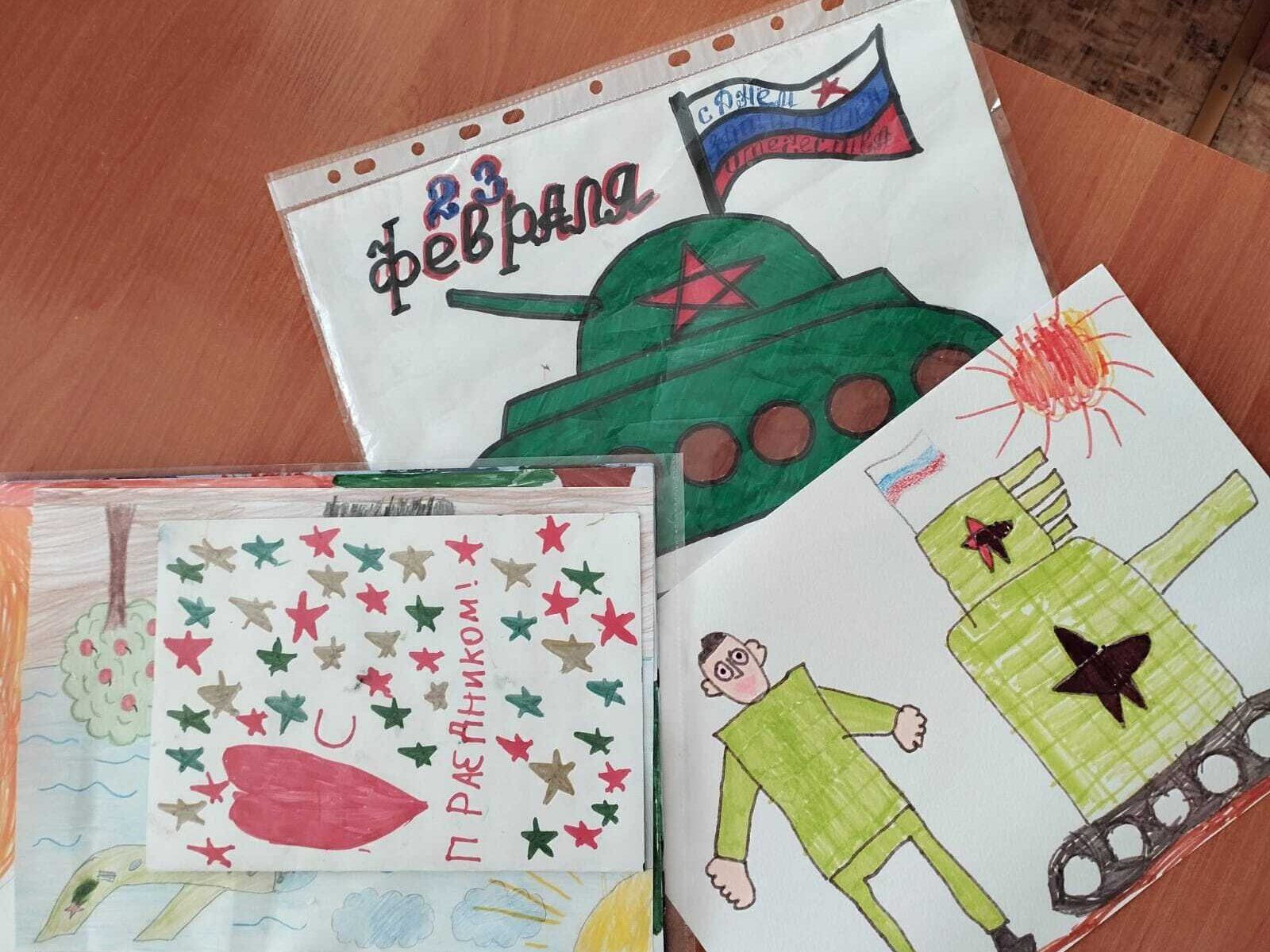

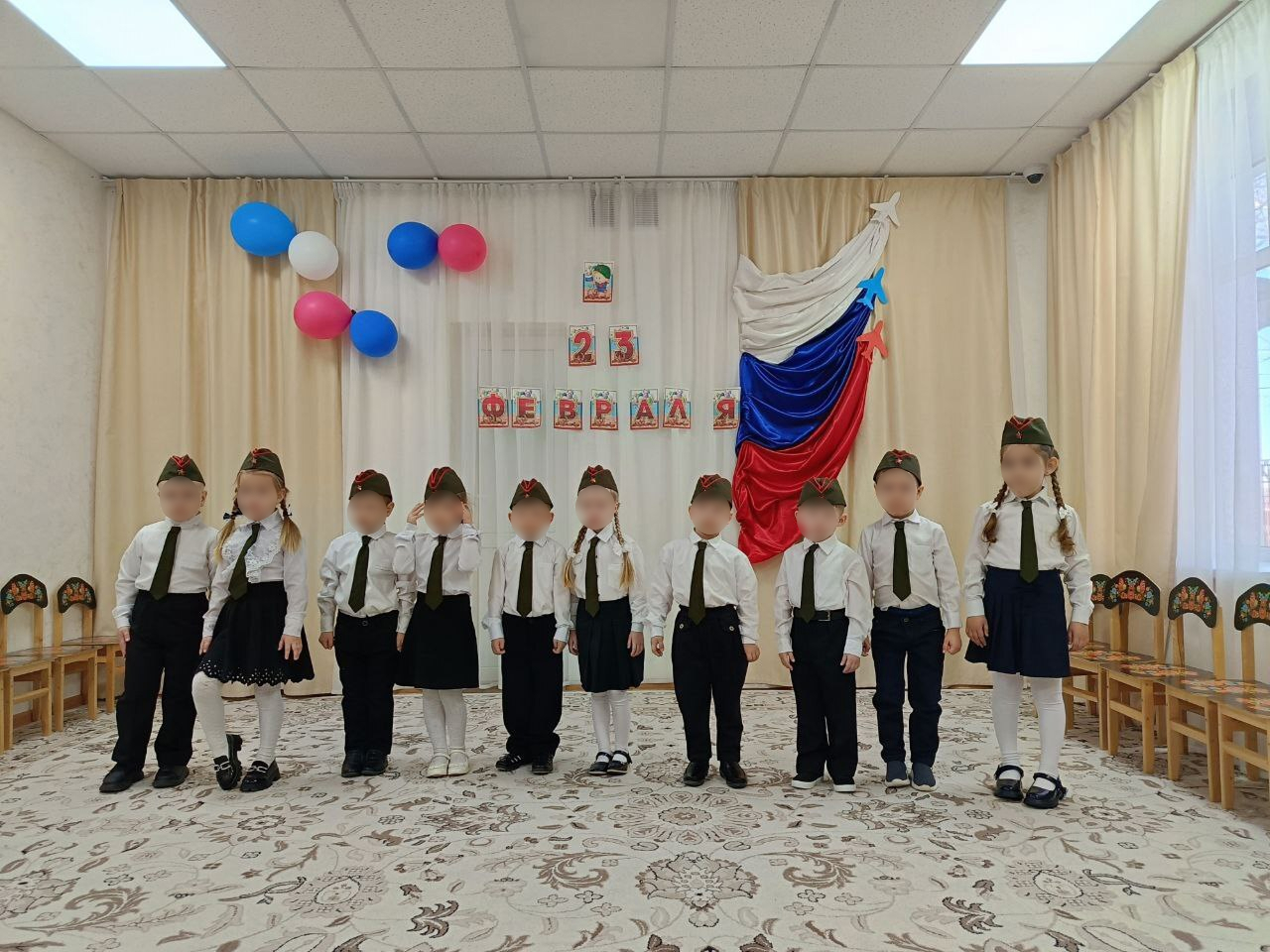

“Young Kacha Cadets”: Military Education from Kindergarten
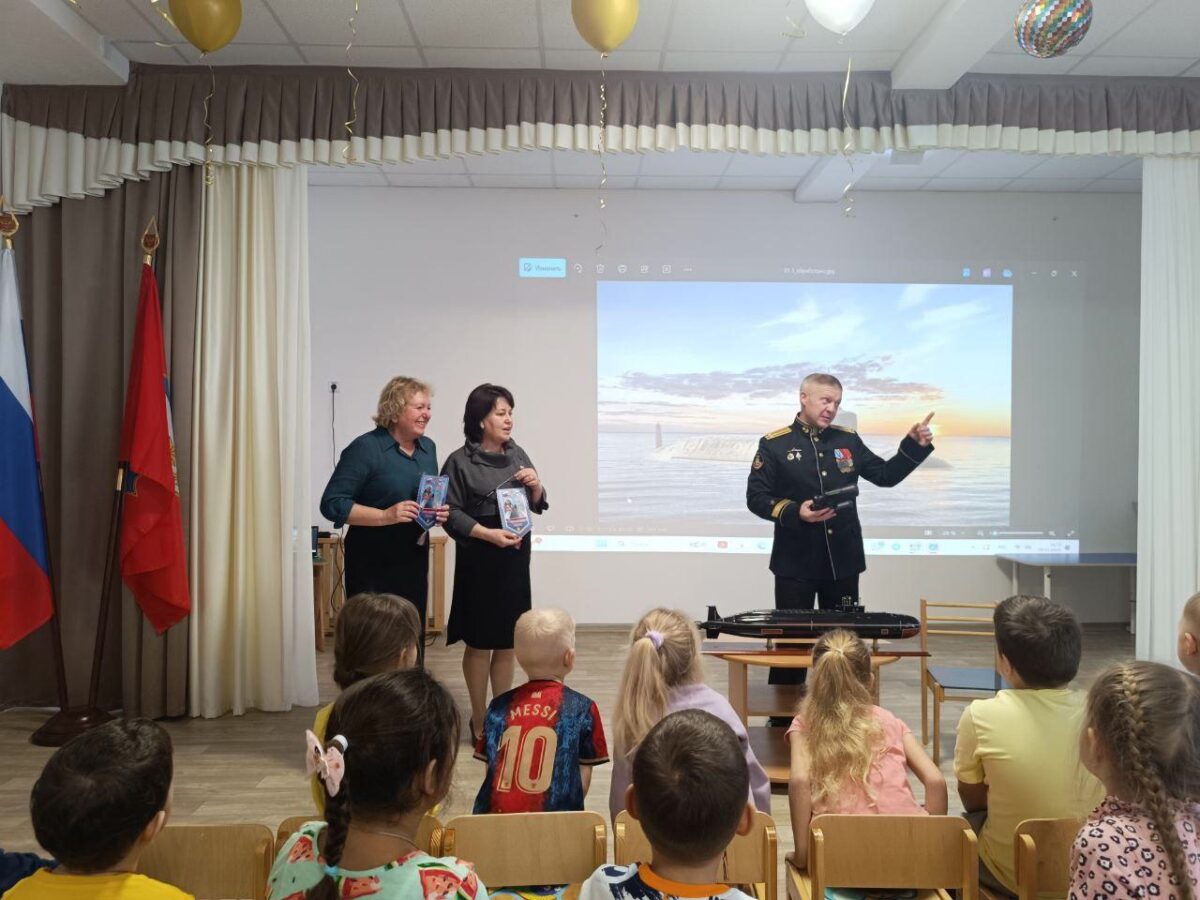

A cadet group of 32 children of senior preschool age was opened at Kindergarten No.103 back in 2020. Currently, the “Young Kacha Cadets” program covers 117 children aged 5 to 7 years, with 15 educators involved in its implementation.
The training under the “Young Kacha Cadets” program is conducted with the aim of “educating a humane, spiritually and morally developed, intellectually, culturally, and physically well-rounded individual, worthy future citizens of Russia, patriots of their Homeland”, and it aims to shape the following qualities in the children:
“[…] the perception of Russia as their homeland, as a great country; to introduce the children to the most notable pages of the history of the Russian state; to expand their knowledge of cadet traditions; to teach the general provisions of the drill regulations and the duties of commanders and children before and during formation; to teach elements of drill training; […]”
The following are excerpts from the “Young Kacha Cadets” program, approved by Yulia Sidorova on 30 August 2024 for a period of two years.
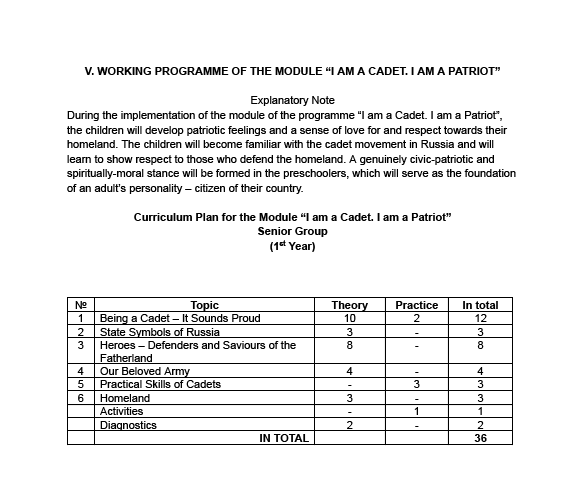

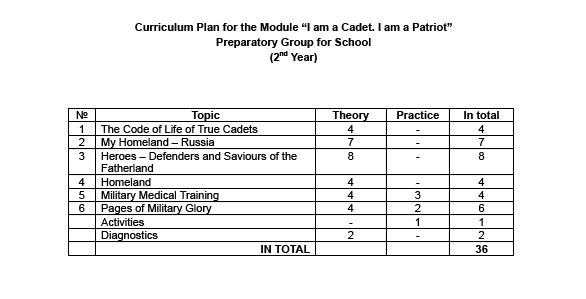

To implement the “Young Kacha Cadets” programme, Kindergarten No.103 has established cooperation with the Russian military unit No.49311, and also receives guidance and methodological assistance from the so-called “Sevastopol State University”
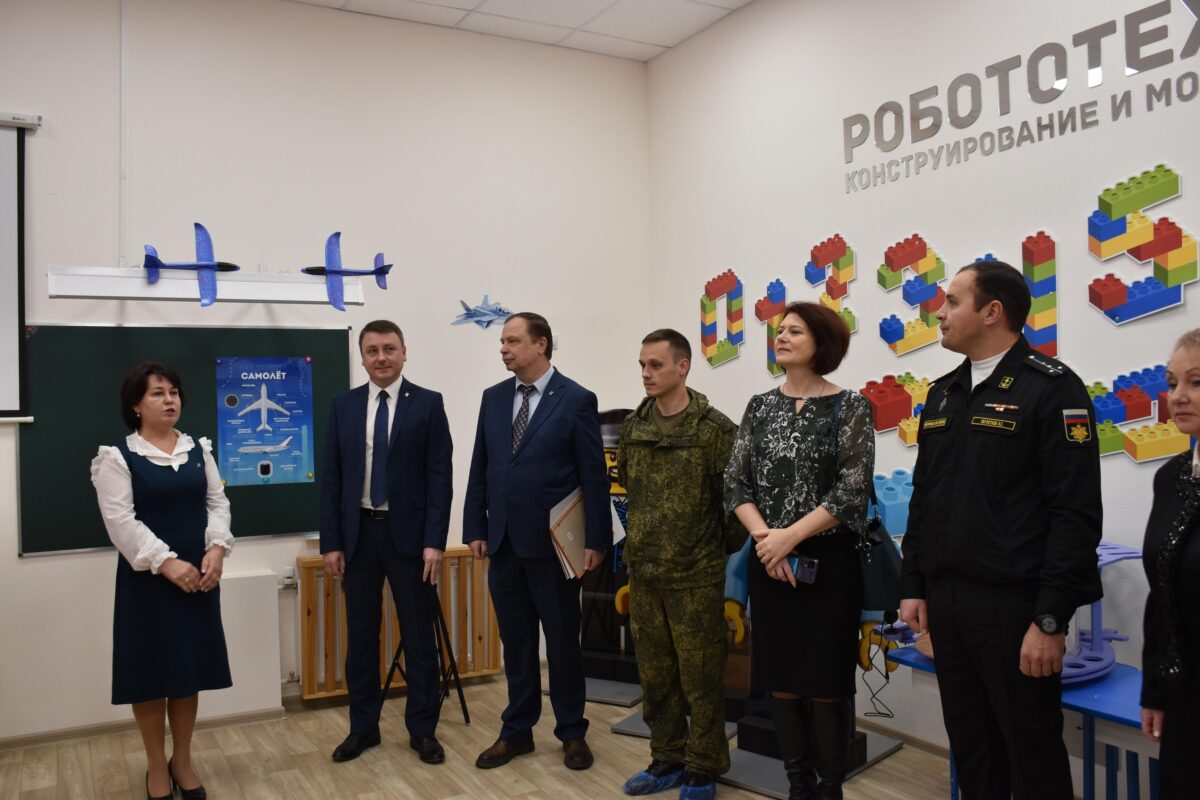

The occupation authorities of Sevastopol included Kindergarten No.103, with the “Young Kacha Cadets” program, in the “List of Regional Innovative Platforms Conducting Educational Activities in the Territory of Sevastopol”. In January 2025, the head of the institution, Yulia Sidorova, publicly reported on the “successes” of this project. As part of the presentation of the kindergarten’s work, a “ceremonial initiation” of the children into cadets took place, with representatives of the so-called “authorities” of occupied Sevastopol present, including the deputy of the so-called “Legislative Assembly” Alexander Kulagin. In his speech, he emphasized that for the children, it was a “great honor” to become cadets in 2025, which has been declared “Year of the Defender of the Fatherland” in Russia. The politician stated that the core values of cadet education are patriotism and discipline, and he expressed confidence that every child would always be ready to defend Russia.
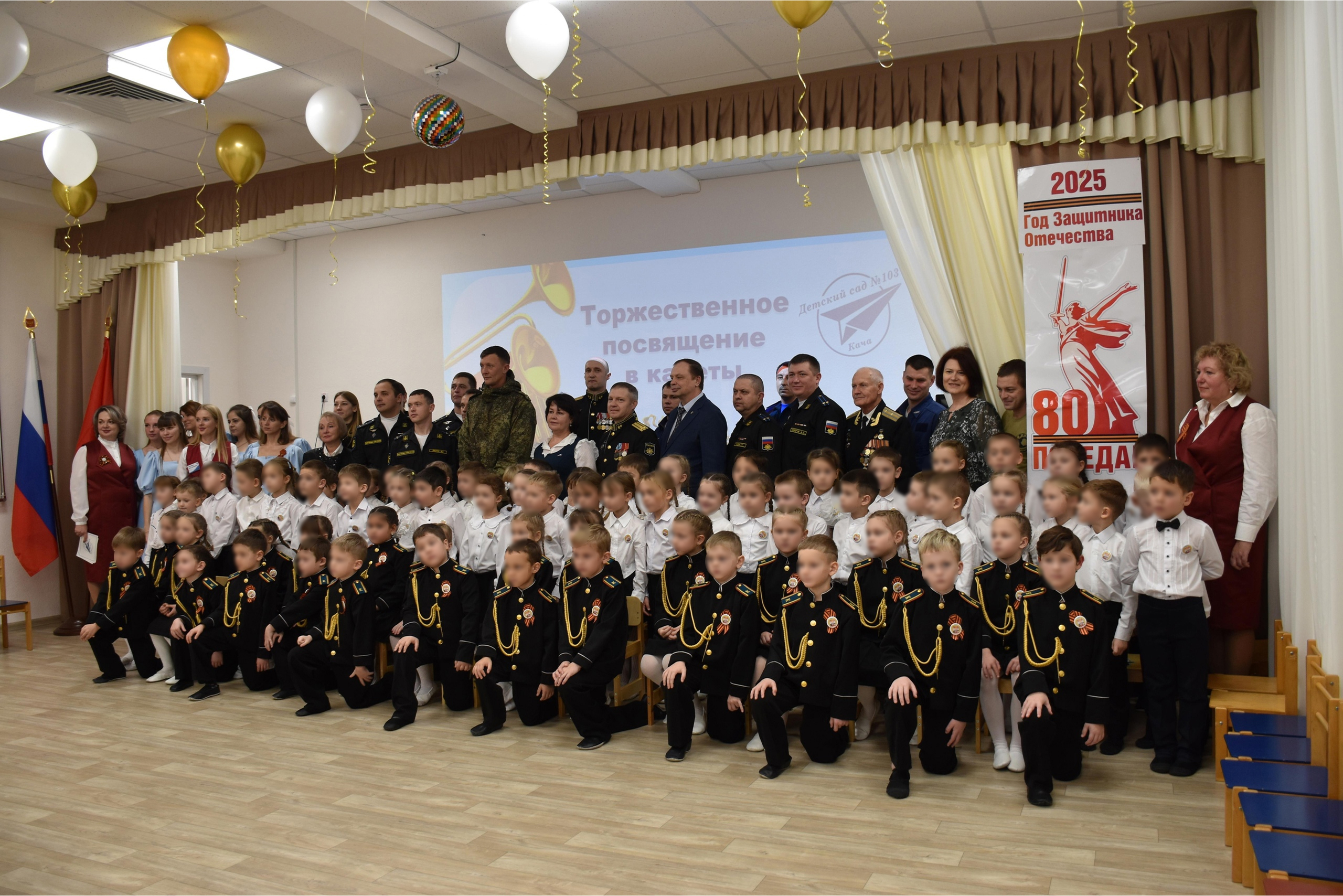

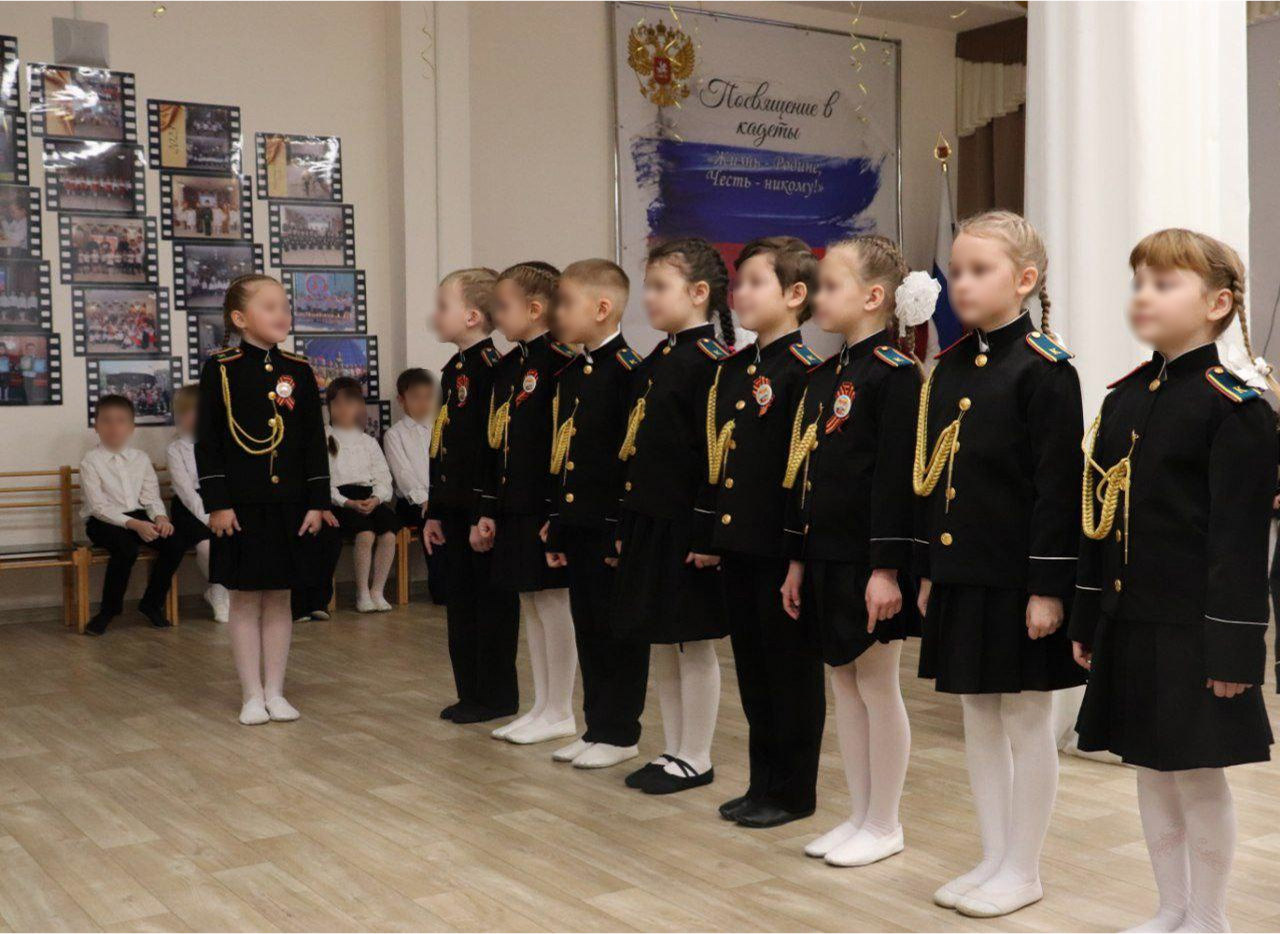

Another way of instilling loyalty to Russian military traditions in children is the annual “Kacha Cadet Ball”. In the spring of 2024, it took place for the fifth time. Preschoolers in military uniforms performed the cadet waltz, polonaise, patriotic songs, and recited poems about the “heroic history of Russia”.
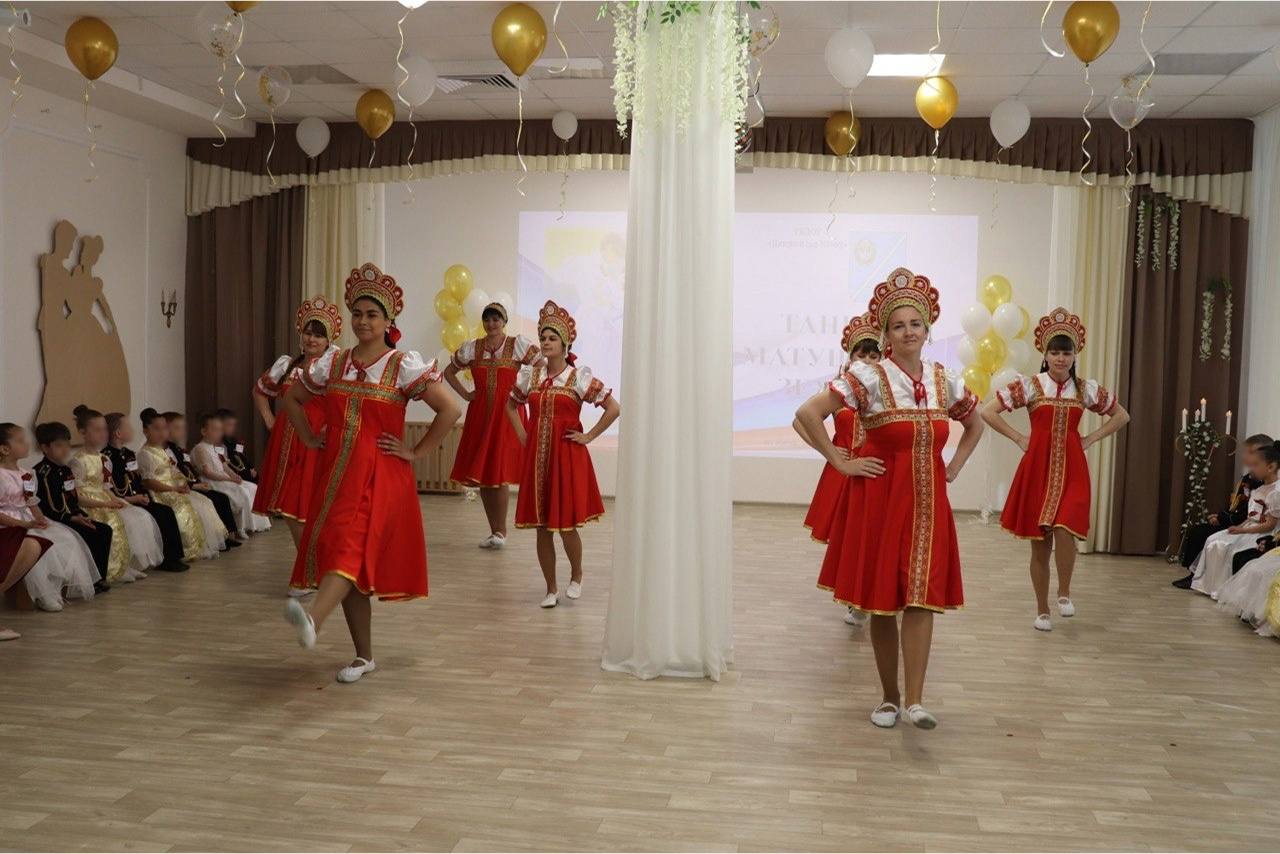

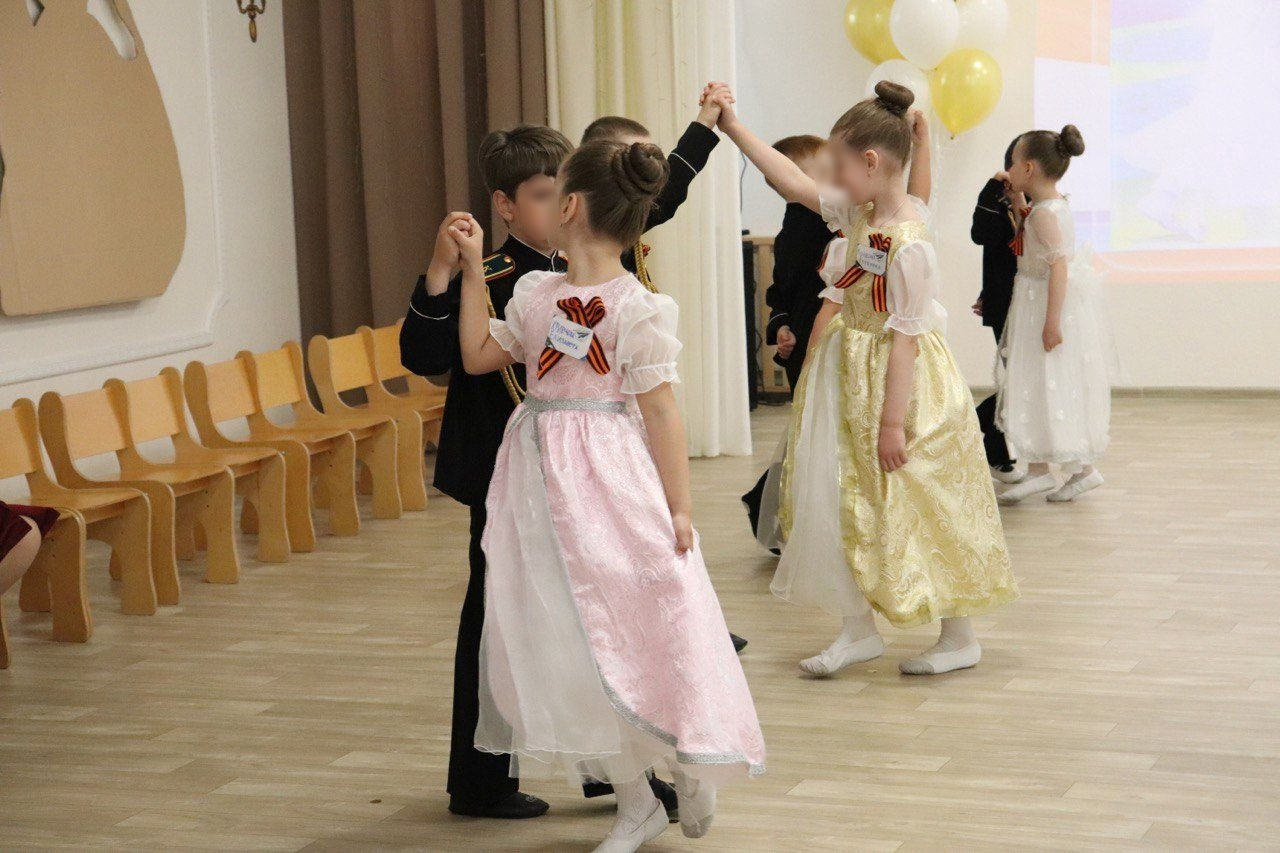

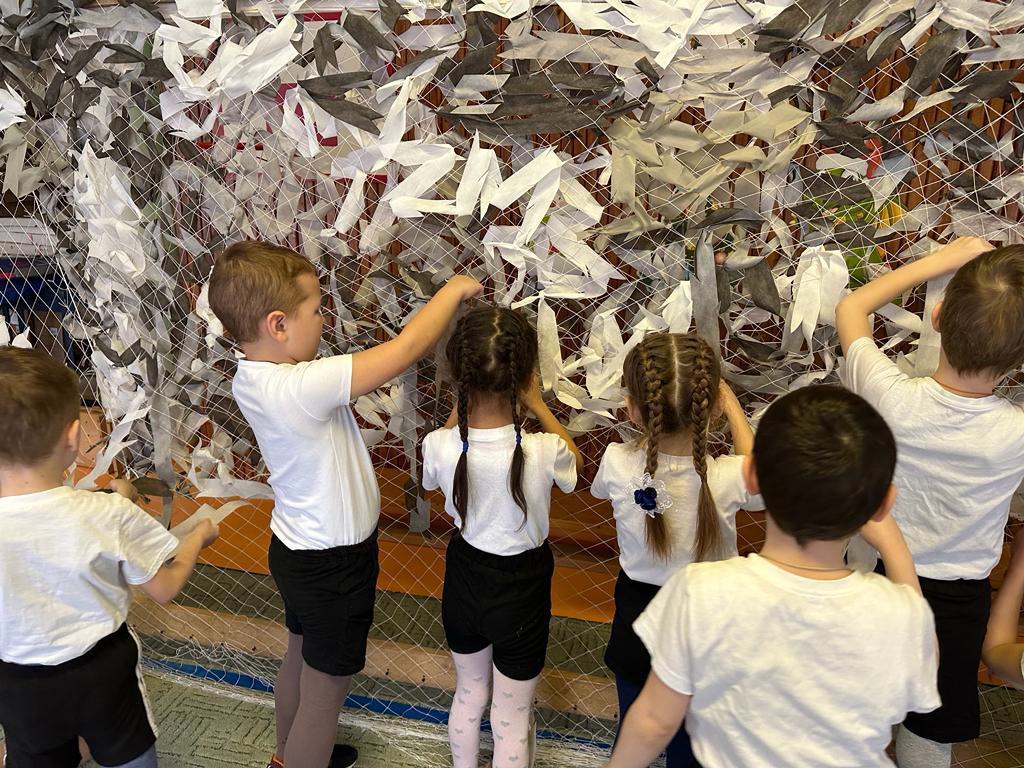

In addition, children are involved in assisting Russian military personnel. Specifically, representatives of the organization “Maskseti” (“Camouflage Nets”), which is engaged in collecting humanitarian aid for participants of the so-called “special military operation”, conducted a masterclass on weaving camouflage nets. The event was attended not only by the educators but also by the preschool children. This is how the young “cadets” are accustomed to the idea that helping the Russian military is part of their duty, and such activities strengthen their sense of belonging to Russia’s grand “mission”.
The systematic militarisation of education in TOT, particularly through cadet programs, is a key component of Russia’s long-term strategy. It aims to familiarize Ukrainian children with military discipline from an early age, to normalize the cult of war, and eventually to recruit them into the Russian armed forces or other law enforcement and security institutions. From preschool onward, they are immersed in an environment where critical thinking is suppressed in favour of blind obedience and loyalty to the “Fatherland”, which, in reality, is an aggressor state. This occupation policy is a deliberate attempt to eradicate Ukrainian identity, promote Russification, and shape a generation that will unreservedly support the Russian regime and, if required, be willing to sacrifice their lives for it.
This article was prepared with the financial support of the Czech organisation People in Need, as part of the SOS Ukraine initiative. The contents of the publication do not necessarily reflect their position.


